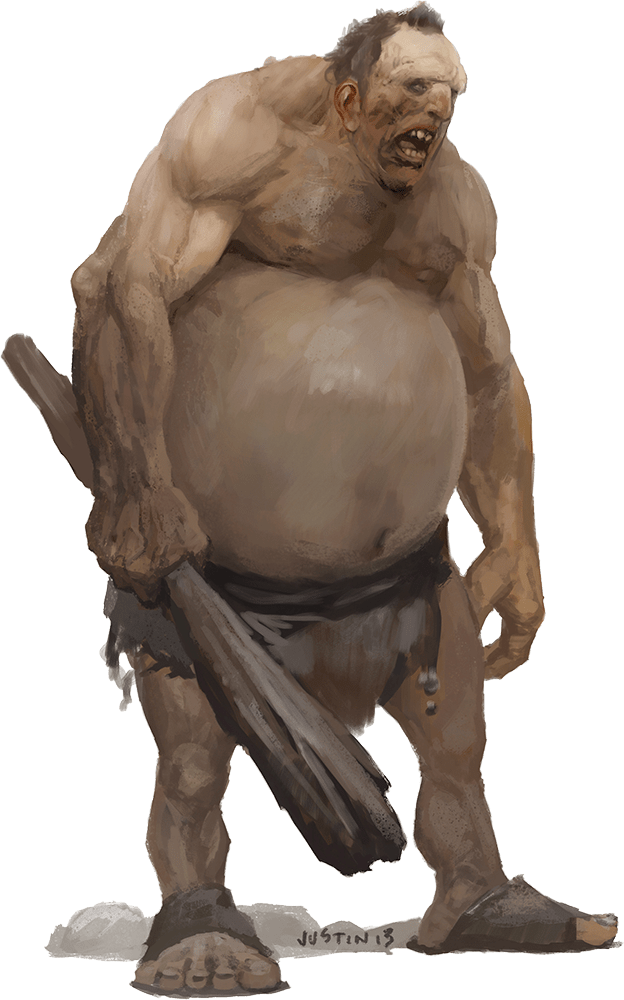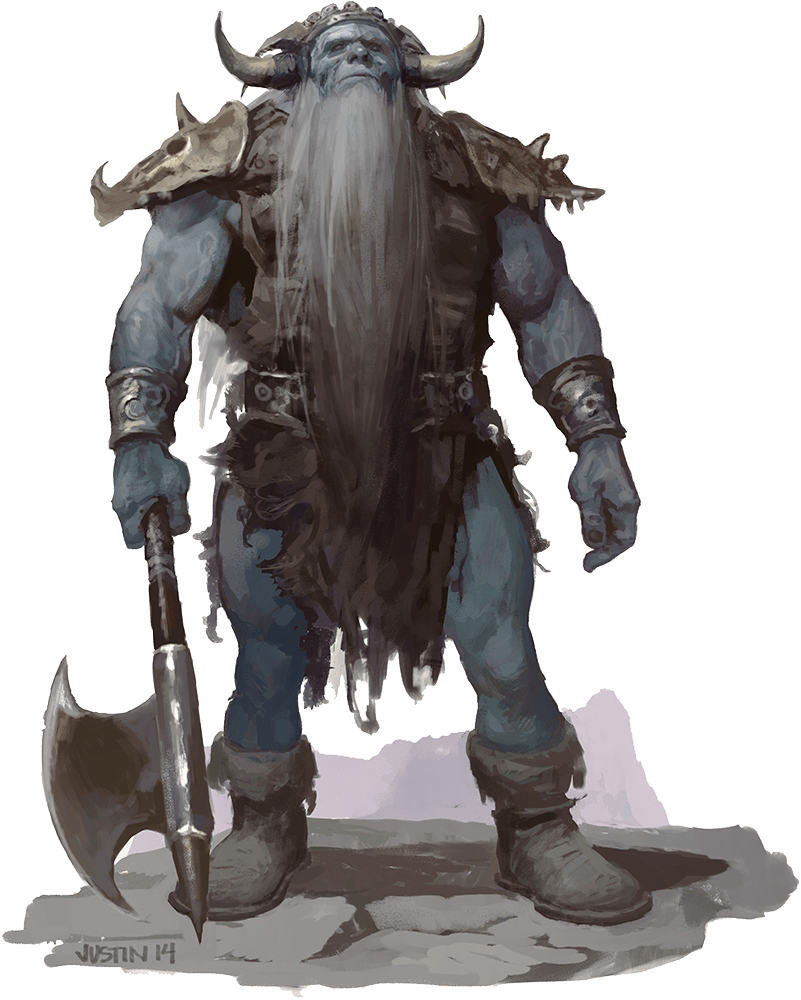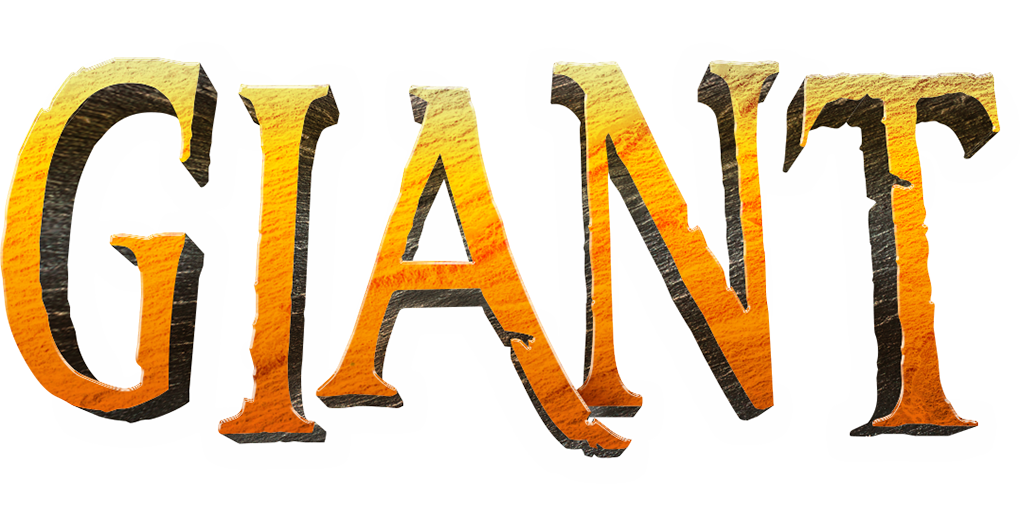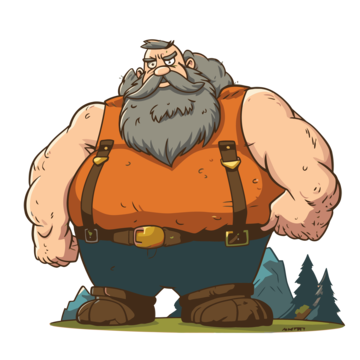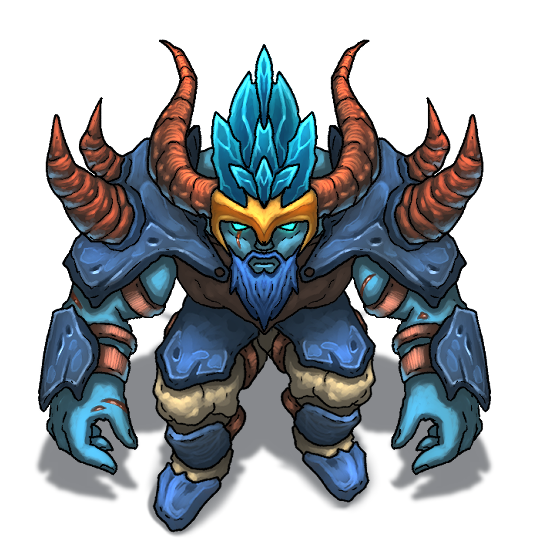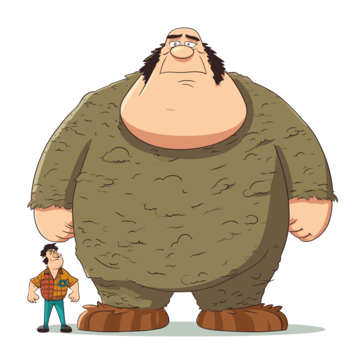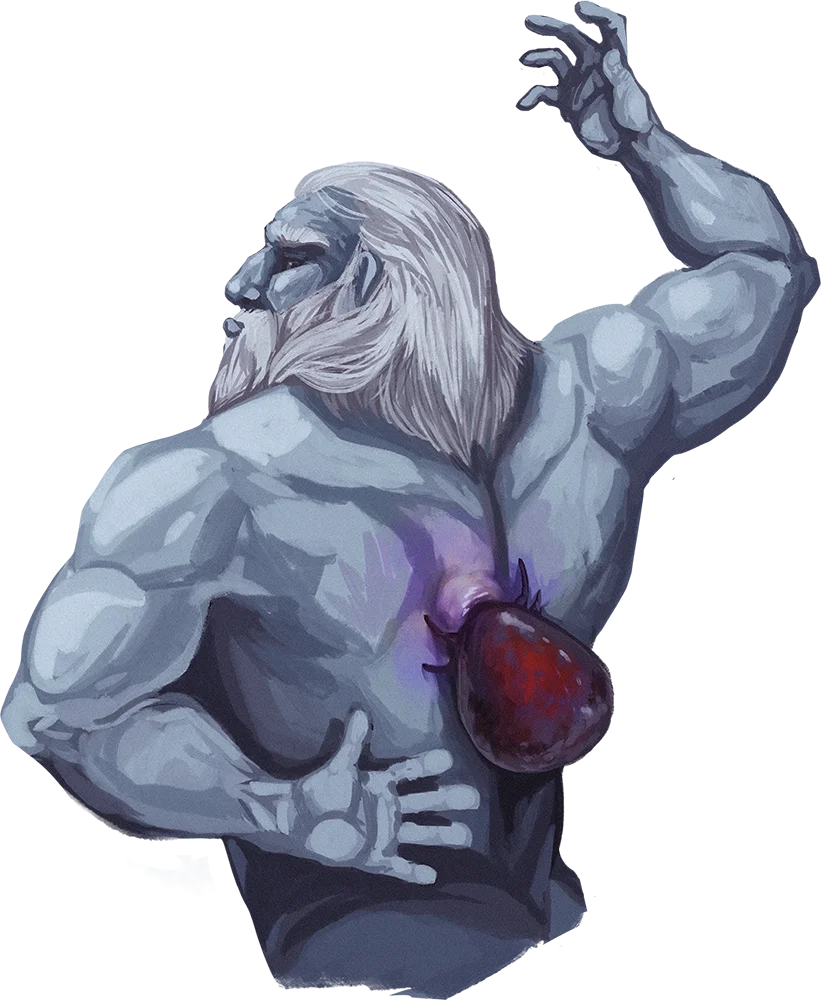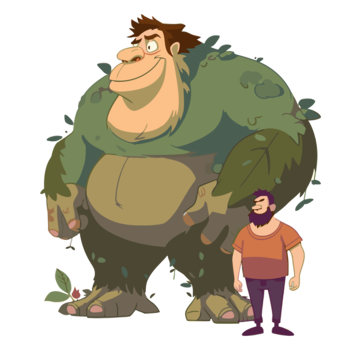Download top and best high-quality free Giant PNG Transparent Images backgrounds available in various sizes. To view the full PNG size resolution click on any of the below image thumbnail.
License Info: Creative Commons 4.0 BY-NC
A “giant” is a common term used to describe a colossal creature that is significantly larger than the average size of its kind. It is often used to describe humans, animals, or plants that exhibit impressive size and strength, and is generally considered to be awe-inspiring.
Giants can be found in numerous myths, legends, and fairytales throughout history, and have been a source of fascination and wonder for centuries. From the towering giants of Greek mythology to the gentle giants of modern children’s stories, these massive beings continue to captivate and inspire audiences of all ages.
The Fascinating World of Giants
When we consider giants, the first image that comes to mind is a human-like creature with immense size and strength. However, giants take many forms in different cultures and myths, ranging from fire-breathing dragons to gentle, benevolent creatures.
One of the most well-known giants in mythology is the Greek giant Polyphemus, who is featured in Homer’s Odyssey. Polyphemus, the son of Poseidon, was a cyclops – a one-eyed giant – who was blinded by the hero Odysseus. Another famous giant in Greek mythology is Atlas, who was punished by Zeus for leading a rebellion against the gods. Atlas was tasked with holding up the sky on his shoulders, and his image can still be found on maps and globes today.
Giants have also been a prominent feature in medieval folklore and tales of fantasy, with creatures such as trolls, ogres, and giants featuring in numerous stories. The popular children’s story “Jack and the Beanstalk” tells of a boy who climbs a magical beanstalk to a giant’s castle in the sky, while the legendary tale of Beowulf features the hero battling a giant sea monster known as Grendel.
Real-Life Giants
While the giants of myth and legend are undoubtedly fascinating, there have also been many real-life examples of individuals who have exhibited extraordinary size and strength. One of the most famous examples is Robert Wadlow, who was born in 1918 and grew to become the tallest person in recorded history, measuring in at an astounding 8 feet 11 inches tall. Wadlow’s extraordinary height was due to a rare condition that caused his body to continue growing well into his twenties, and he became a celebrity during his lifetime due to his size and unique appearance.
Another real-life giant is the blue whale, which is the largest animal on the planet. Blue whales can grow up to 100 feet long and weigh as much as 200 tons, and are found in oceans all around the world. Despite their formidable size, blue whales are gentle creatures that feed primarily on krill, and are a popular sight for whale-watchers around the world.
The Symbolism of Giants
Giants have long been symbols of power, strength, and awe-inspiring wonder. In many cultures, these massive creatures are seen as guardians or protectors of the natural world, while in others they are viewed as terrifying monsters to be vanquished. In some cases, giants are used as representations of societal issues, such as inequality or power imbalances. Whatever their context, giants continue to be a fascinating and enduring symbol in human culture.
The symbolism of giants can be seen in numerous forms of media, from movies and television shows to books and video games. In the popular fantasy series “The Lord of the Rings,” for example, the giant tree-like creatures known as Ents represent both the power of nature and the need to protect it from destruction. Similarly, the monstrous giants featured in the “Attack on Titan” anime series symbolize the fear and chaos of a society under siege.
The Wonder and Mystery of Giants
Ultimately, there is something undeniably captivating about the idea of giants. Whether they are towering over us in myth and legend or amazing us with their size and strength in real life, giants continue to be a source of fascination and wonder for people of all ages and backgrounds. They represent the limitless potential of the natural world, and the awe-inspiring power of the unknown. Perhaps this is why we continue to be drawn to their stories and legends, even in our modern age.
Download Giant PNG images transparent gallery
- Giant PNG Picture
Resolution: 624 × 1000
Size: 333 KB
Image Format: .png
Download
- Giant PNG
Resolution: 801 × 1000
Size: 445 KB
Image Format: .png
Download
- Giant Transparent
Resolution: 500 × 544
Size: 223 KB
Image Format: .png
Download
- Giant
Resolution: 320 × 728
Size: 157 KB
Image Format: .png
Download
- Giant PNG Clipart
Resolution: 1020 × 526
Size: 517 KB
Image Format: .png
Download
- Giant PNG Cutout
Resolution: 800 × 566
Size: 123 KB
Image Format: .png
Download
- Giant PNG File
Resolution: 360 × 360
Size: 76 KB
Image Format: .png
Download
- Giant PNG HD Image
Resolution: 560 × 560
Size: 332 KB
Image Format: .png
Download
- Giant PNG Image HD
Resolution: 306 × 306
Size: 125 KB
Image Format: .png
Download
- Giant PNG Image
Resolution: 360 × 360
Size: 64 KB
Image Format: .png
Download
- Giant PNG Images
Resolution: 821 × 1000
Size: 805 KB
Image Format: .png
Download
- Giant PNG Photo
Resolution: 768 × 305
Size: 111 KB
Image Format: .png
Download
- Giant PNG Photos
Resolution: 350 × 364
Size: 58 KB
Image Format: .png
Download
- Giant PNG Pic
Resolution: 360 × 360
Size: 63 KB
Image Format: .png
Download
